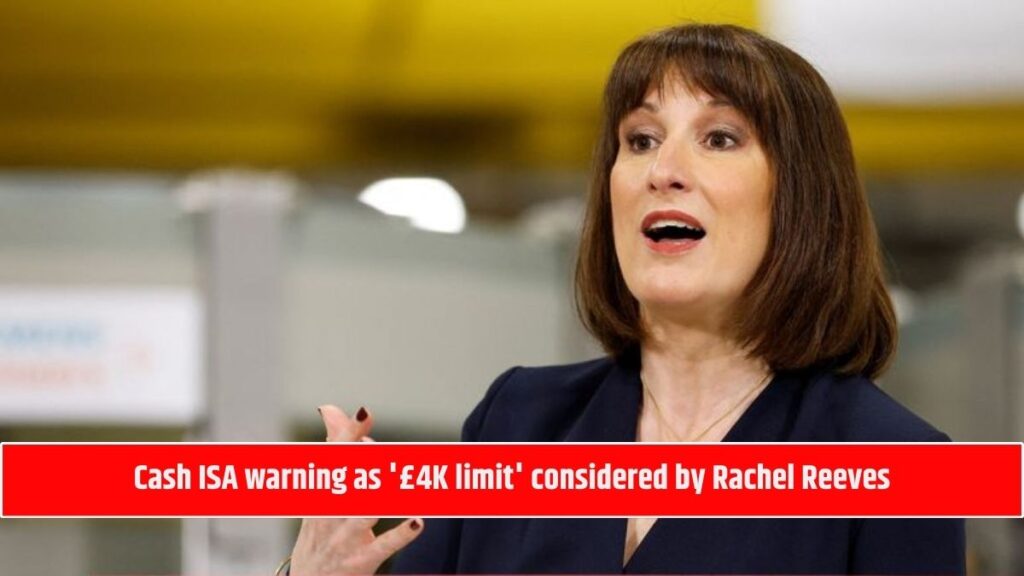The UK government, under Chancellor Rachel Reeves, is reportedly in discussions about reducing the annual cash ISA allowance from £20,000 to just £4,000. There is also speculation that the cash ISA could be scrapped entirely to encourage more investment in stocks and shares ISAs. This potential move has sparked debate among financial experts, savers, and banks, with concerns about its impact on personal savings and the wider economy.
Proposed Changes to Cash ISAs
During a meeting with city executives, Reeves suggested that the government is reviewing the current £20,000 ISA allowance, which applies to both cash and stocks and shares ISAs. The aim is to promote a stronger culture of retail investing, similar to the US, where more individuals invest in equities rather than keeping large sums in savings accounts.
Labour’s push for increased investment in stock markets aligns with their broader economic strategy to stimulate business growth. However, banks and building societies, which rely on cash ISAs for deposits to fund loans and mortgages, are expected to resist these changes.
Why Cash ISAs Matter
Cash ISAs are popular among UK savers, with over 18 million people holding accounts containing nearly £300 billion. These accounts provide tax-free savings, making them particularly valuable for individuals on modest incomes, retirees, and those saving for major life expenses.
- Support for Mortgage Lending: Banks and building societies use cash ISA deposits to fund home loans and business investments. A reduction in the tax benefits of cash ISAs could limit mortgage availability, especially for first-time buyers.
- Accessible Savings for Different Groups: Many people prefer cash savings over investments due to lower risks. Young savers, women, and individuals earning below the average income often rely on cash ISAs to protect their money from tax deductions.
- Tax Implications: Higher-rate taxpayers already face taxes on savings interest above certain thresholds. For them, cash ISAs offer a way to shield their savings from additional tax burdens.
Who Will Be Affected by the ISA Changes?
Working Professionals and Savers
Financial experts recommend keeping 3-6 months’ worth of essential expenses in an easily accessible savings account. For an individual with monthly expenses of £2,000, this could mean keeping £6,000–£12,000 in liquid savings. If the cash ISA allowance is slashed to £4,000, many savers may struggle to keep their emergency funds fully tax-free.
Self-Employed Individuals
Self-employed people often set aside savings for tax bills. With limited ISA allowances, they might face taxation on their savings, reducing their net earnings.
Retirees and Those with Care Costs
Retired individuals often rely on cash ISAs to protect their savings from taxes. Those paying for care costs may need substantial liquid funds, sometimes over £30,000 annually. A lower ISA limit could force them to pay tax on essential savings.
Young Homebuyers
For young individuals saving for a home, the Lifetime ISA (LISA) is a preferred option. However, its £4,000 limit means that those receiving financial help from parents may need additional savings options. If cash ISAs are restricted, these savers could face higher tax liabilities on their deposits.
Will Cash ISAs Still Be Worth It?
Despite possible changes, cash ISAs remain a valuable tool for many savers. Even at a lower limit, they provide tax-free savings, helping individuals protect their money from interest-related taxes. However, those with larger savings may need to explore alternative tax-efficient strategies, such as spreading their savings across multiple tax years or considering investment ISAs.
The potential reduction of the cash ISA allowance has sparked concern among financial experts, banks, and savers. While the government aims to encourage more investment in stocks and shares, many individuals rely on cash ISAs for secure, tax-free savings. If these changes go ahead, millions of UK savers will need to reconsider their financial strategies to protect their money from unnecessary taxes. Whether you’re saving for retirement, a home, or an emergency fund, understanding the tax implications of your savings is now more important than ever.
| Visit for More News and Updates | WSOA NEWS |
